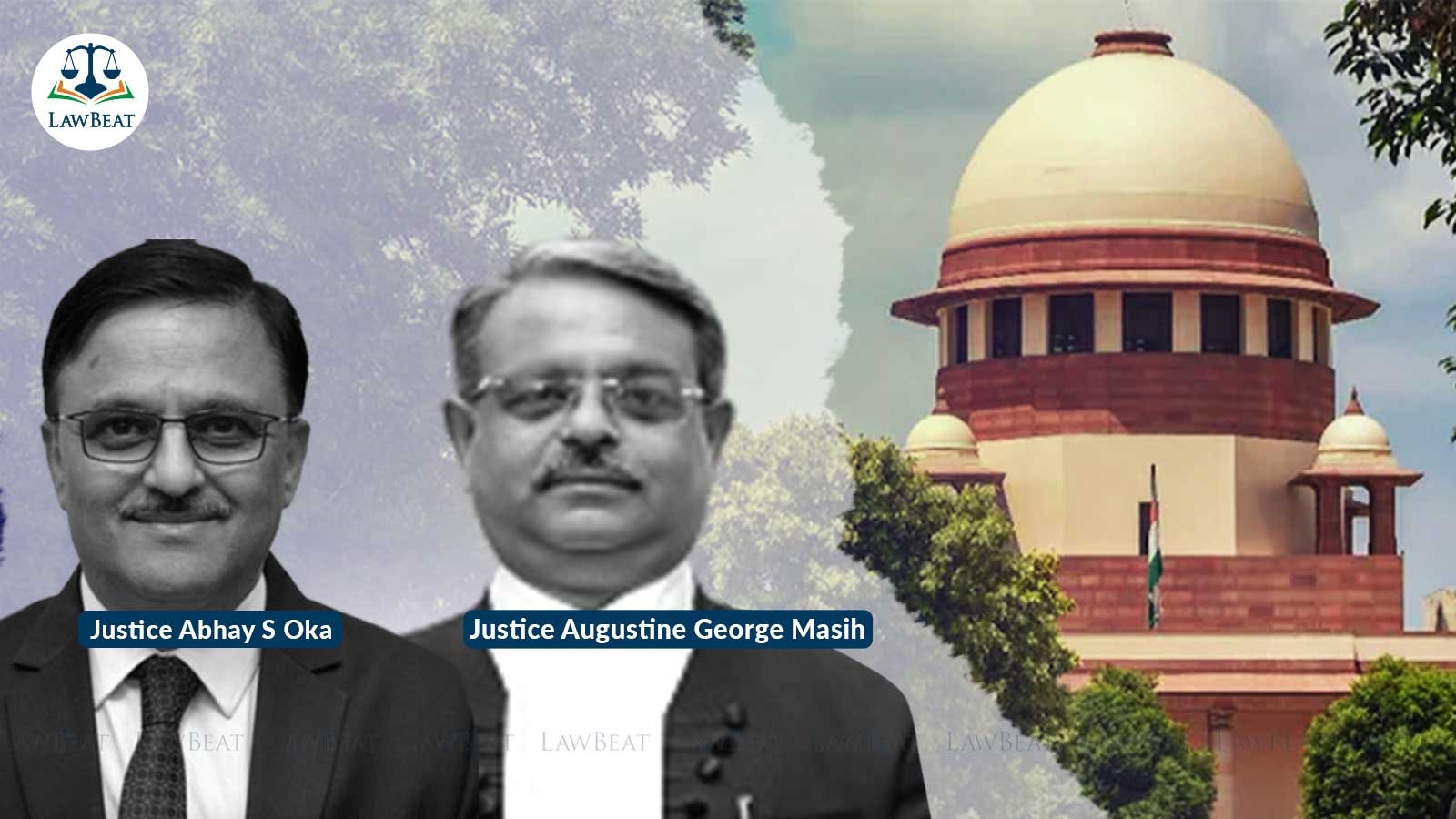'Bank Manager Admitted Mistakes': SC Reduces Dismissal to Pay Cut

Court felt a minor penalty, as provided in Regulation 4(e) of the Disciplinary Regulations, would be appropriate in the case at hand
The Supreme Court on January 21, 2025, emphasised that an acquittal in a criminal case is no ground to exonerate a delinquent in disciplinary proceedings as the standard of proof differs in these proceedings, and the adequacy of the evidence adduced during disciplinary inquiry cannot be gone into in writ jurisdiction.
A bench of Justices Abhay S Oka and Augustine George Masih allowed an appeal filed by the General Manager Personnel, Syndicate Bank in part against the high court's single and division bench decisions quashing the dismissal of a branch manager, B S N Prasad on the grounds that he was acquitted in the criminal case, and that the inquiry was not fair, among others.
Relying upon Damoh Panna Sagar Rural Regional Bank & Another Vs Munn Lal Jain (2005), the court said that the Bank officers are expected to maintain a higher standard of honesty, integrity, and conduct.
In response to a charge sheet filed in May 2011, the employee accepted that there was an excess release of crop insurance amount, which was recovered later on; due to a mistake, an excess crop insurance amount was sanctioned, which was recovered from that party, and a wrong credit was made but it was also later on recovered. As regards the allegation of excess claim amount, he admitted the credits were done due to the pressure of work.
The respondent stated that there was a threat to his life, and he worked under pressure. He requested to condone the mistakes on his part as a special case. Thus, he accepted almost all allegations in the 'articles of charge'.
"The respondent pointed out his achievements while working in the Mudigubba branch. Thus, there was no factual dispute about the correctness of illegalities and irregularities alleged in the charge sheet," the bench pointed out.
It also noted the principles of natural justice were followed during the disciplinary inquiry. The respondent thoroughly cross-examined the officer examined as a witness. The respondent did not apply for leading any evidence.
"Therefore, the finding that the disciplinary inquiry was not fair or was in breach of the principles of natural justice cannot be accepted as correct. The entire premise on which the High Court had interfered is without basis," it said.
The court also pointed out it is well-settled that the exercise of powers by the disciplinary authority is always subject to principles of proportionality and fair play.
In the facts of the case, the bench noted, the financial loss caused to the appellant was reimbursed.
"The respondent, at every stage, fairly accepted his mistakes. The respondent, while replying to the notice and the letters addressed to him by the appellant, repeatedly pointed out that he had to deal with more than 4,800 SKCC accounts during a short period of 60 days. Therefore, he worked under pressure all along. Moreover, he stated that he was in short receipt of crop insurance claims pertaining to 2,500 farmers to the extent of Rs 50 lakhs. Therefore, the farmers and political leaders pressurised him," the bench recorded.
The court also noted the respondent was employed in the appellant bank on August 5, 1985, and he had an unblemished record for more than 21 years till June 11, 2007.
Having perused the Syndicate Bank Officer Employees (Discipline and Appeal) Regulations, 1976, the bench said, there is a provision for imposing minor penalties and major penalties.
"The respondent has already reached the age of superannuation. In our view, the penalty of dismissal was disproportionate to the misconduct established against the respondent and his unblemished career for a long time. However, fact remains that the misconduct alleged and proved against the respondent was of a serious nature considering the fact that a very high standard of conduct is expected from a branch manager of a Bank. Considering the facts of the case, we are of the view that a minor penalty, as provided in Regulation 4(e) of the Disciplinary Regulations, would be appropriate," the bench said.
The court ordered that the penalty be of reducing the respondent to a lower stage in the time scale of pay for one year, without cumulative effect and not adversely affecting his pension.
The bench set aside the high court's judgment and restored the finding recorded in the disciplinary inquiry that the misconduct on the part of the respondent was established.
Case Title: The General Manager Personnel, Syndicate Bank & Ors Vs B S N Prasad
